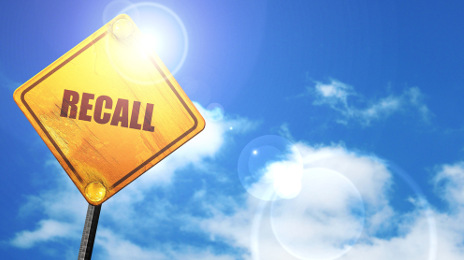Where automakers rank when it comes to recalls

By subscribing, you agree to receive communications from Auto Remarketing and our partners in accordance with our Privacy Policy. We may share your information with select partners and sponsors who may contact you about their products and services. You may unsubscribe at any time.
BOSTON –
With recalls very much in the news these days, dealers and drivers alike may be wondering about automakers’ track records when it comes to such actions.
Using new-vehicle sales data as well as recall data from the National Highway Transportation Safety Administration from the last three-plus decades, iSeeCars endeavored to find out.
The Boston-based automotive data and research company focused on three metrics for 18 automakers:
—Recall rate: How often a manufacturer produces a vehicle with a defect relative to the number of vehicles sold
—Recall timeliness: How quickly and willing an automaker is to identify problems and initiate a recall within three years of vehicle sale
—Recall proactiveness: The extent to which cars recalled were the result of the manufacturer’s own investigations
Subscribe to Auto Remarketing to stay informed and stay ahead.
By subscribing, you agree to receive communications from Auto Remarketing and our partners in accordance with our Privacy Policy. We may share your information with select partners and sponsors who may contact you about their products and services. You may unsubscribe at any time.
Porsche, it turns out, has had the lowest recall rate, while Tesla was tops in timeliness and initiated the highest number of its own recalls.
Looking just at the Big Three, however, General Motors scored the best in those areas.
Recall rates
Between January 1985 and September 2016, Porsche recalled 531 cars for every 1,000 sold — well below the industry average. Volkswagen, on the other hand, came in last on the list, with 1,805 recalls per 1,000 sold.
If you’re wondering how that’s possible, it’s because a vehicle can be recalled multiple times for different reasons.
Volkswagen’s ranking surprised Phong Ly, chief executive officer of iSeeCars,
“VW cars are usually highly rated — Audi was Consumer Reports’ top-rated brand in 2016,” he said.
But VW showed a consistently high recall rate during the study period, and that’s not even counting the fallout from Dieselgate.
Mercedes-Benz, Kia, Tesla and Mazda followed Porsche with the next-lowest recall rates.
Reasons for a recall
While a majority of cars are recalled for issues with potentially dire consequences (death, injury, crash, accident or fire), some recalls are for relatively minor issues.
While GM ranked sixth for recall rate, 90.1 percent of the cars it recalled for were issues with possible dire outcomes. Volkswagen, on the other hand, had the worst recall rate but a lower percentage of vehicles with severe issues (77.6 percent).
And Volvo, which had a rate above the industry average of 88.1 percent, had the lowest number (71 percent) of cars recalled for potentially dire issues.
Tesla, Hyundai, Nissan, Honda and Kia had the highest percentage of vehicles that were recalled for potentially dire problems.
Response time
Industry-wide, manufacturers issued a recall within the first three years 66.6 percent of the time. Tesla (which has only been selling cars since 2008) ranked highest at 100 percent, with Porsche, Jaguar Land Rover, GM and Nissan occupying the next four spots. At the bottom of the list was Mazda at 48.4 percent.
When iSeeCars looked at recall timeliness in five-year segments, some interesting findings emerged.
“When you break the data down, it’s easy to see that timeliness dropped substantially with each five-year segment,” Ly said. “This is largely indicative of NHTSA’s increased push on manufacturers to issue recalls for cars that have been on the road for many years. Takata’s massive airbag recall affected numerous automakers, and so did Mazda’s ignition switch issue.”
Looking at the most recent five-year period, Volvo was the most improved; its timeliness went up 100 percent from 66 percent in the previous five-year stretch. But Mazda’s timeliness fell significantly, from 100 percent between 2002 and 2006 to 22 percent from 2012 to 2016. And while GM’s timeliness ranked highest, its timeliness fell to 51 percent in the most recent five-year period.
Taking control
Recall campaigns can result from investigations initiated by either an automaker or the NHTSA. Proactivity is a measure of the former.
While it’s not surprising that Tesla ranked highest in proactivity since it has only been selling cars for eight years, it is interesting to note that Ford ranked last, with only 29.6 percent of cars recalled during the past 31 years resulting from problems the automaker found on its own and well below the industry average of 46 percent.
Of the 20 recall campaigns that each affected more than 1 million Fords, 18 were initiated by the NHTSA.
Ly summarized how consumers can use this information in their car-buying decisions.
“With this approach, consumers can have increased confidence that they’re buying from a manufacturer that will likely respond more swiftly to address safety issues and protect its customers,” he said.
See more from iSeeCars by clicking here.


